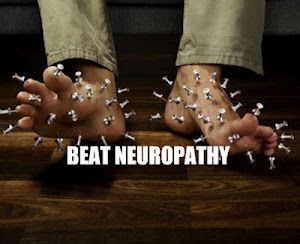Neuropathy is a medical condition characterised by damage or dysfunction of nerves, primarily affecting the peripheral nervous system, which consists of nerves outside the brain and spinal cord. These nerves play a vital role in transmitting signals between the central nervous system (the brain and spinal cord) and the rest of the body, including muscles, skin, and internal organs.
Types and Causes of Neuropathy:
- Diabetic Neuropathy: This is a prevalent type of neuropathy that develops as a complication of diabetes. Elevated blood sugar levels can gradually damage nerves, typically beginning in the feet and then progressing upwards. Symptoms may include numbness, tingling, pain, and muscle weakness.
- Peripheral Neuropathy: This term encompasses various nerve damage conditions in the peripheral nervous system. It can be caused by infections, autoimmune disorders, alcohol abuse, certain medications, and exposure to toxins.
- Carpal Tunnel Syndrome: This specific neuropathy affects the median nerve in the wrist, resulting in symptoms such as hand and finger pain, numbness, and weakness.
- Autonomic Neuropathy: Autonomic neuropathy impacts the autonomic nervous system, which controls involuntary functions like heart rate, digestion, and blood pressure. Symptoms may include dizziness, digestive problems, and difficulty regulating body temperature.
- Hereditary Neuropathies: These genetic conditions lead to nerve damage, often manifesting in childhood or adolescence.
- Idiopathic Neuropathy: In some cases, the cause of neuropathy remains unknown, and it is referred to as idiopathic neuropathy.
Common Neuropathy Symptoms:
Neuropathy symptoms can vary depending on the type and severity but often include:
- Pain
- Tingling
- Numbness
- Muscle weakness
- Loss of coordination
These symptoms can significantly impact a person’s daily life, affecting mobility and the ability to perform routine tasks.
Treatment of Neuropathy:
Treatment approaches for neuropathy depend on its underlying cause. Options include:
- Managing Underlying Conditions: For conditions like diabetes, controlling blood sugar levels can help prevent further nerve damage.
- Medications: Pain management medications, such as analgesics, anti-inflammatories, and anticonvulsants, can help alleviate neuropathic pain.
- Physical Therapy: Exercises and physical therapy can improve muscle strength, coordination, and mobility.
- Lifestyle Changes: Lifestyle modifications, such as quitting alcohol or adjusting ergonomics at work, may be necessary.
- Surgery: In some cases, surgical procedures can relieve nerve compression or correct structural issues contributing to neuropathy.
- Symptomatic Relief: Heat therapy, foot care, and assistive devices can provide relief from symptoms.
Seeking early diagnosis and treatment is crucial to prevent further nerve damage and improve the prognosis for individuals with neuropathy. Consultation with a healthcare professional is essential to determine the appropriate treatment plan based on the specific diagnosis.
For more information and resources on neuropathy, you can visit https://www.touchofwellness.biz





